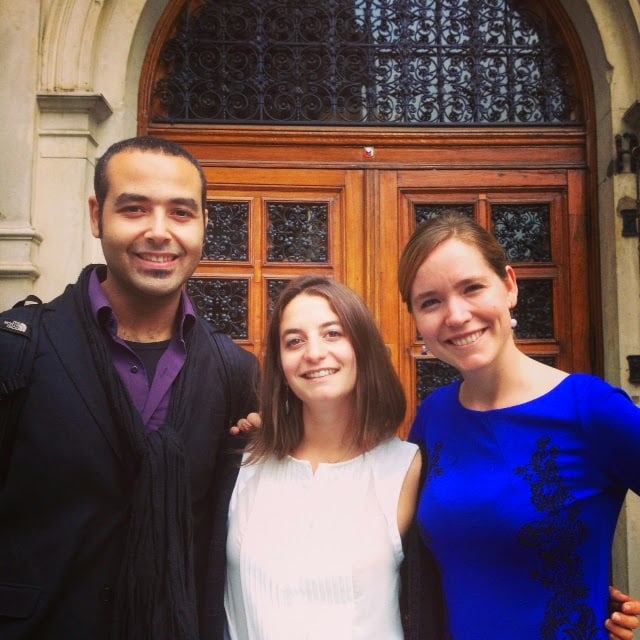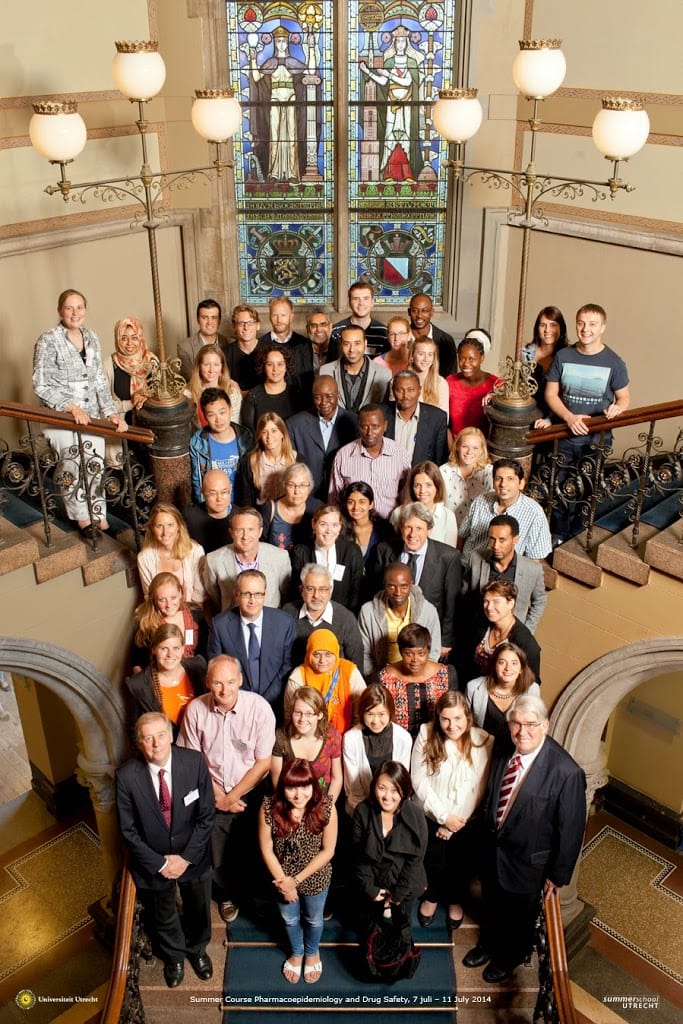by PETRONILLE BOGAERT, MOSTAFA EL YAMANY and ALIÉNOR DEVALIÈRE
 |
|
HAI’s staff and interns attended
Utrecht University’s summer school course on pharmaceutical policy analysis last week. |
Three HAI staff members and interns embarked on a “short-distance” adventure to Utrecht last week to attend the ‘Pharmaceutical Policy Analysis’ course at Utrecht University’s Summer School. The course brought together participants from various backgrounds, nationalities and disciplines—all with interest in pharmaceutical policy and its impact on global health. Among the 40 participants were NGO representatives, WHO technical officers, members of national and international regulatory bodies, as well as students (ranging from undergrads to doctoral candidates).
The course provided a valuable opportunity to gain insight into current developments in pharmaceutical policy-making and gave a better understanding of methods available for analysing the effects of policy interventions. Each day, a topic was covered that impacts the global agenda of pharmaceutical policy. This included topics on the global context of drug regulation, governance of medicines, innovation to address medical needs and measures to increase access to medicines.
 |
| Forty staff from NGOs, the WHO and drug regulatory bodies attended the course on pharmaceutical policy analysis. |
On Wednesday, a policy and politics forum was held with intriguing and engaging debates on challenges facing the governance of medicines. The debate was moderated by Professors Richard Laing and Bert Leufkens, and several key players were invited to participate, including HAI’s executive director, Tim Reed, and global pricing coordinator, Marg Ewen. The debate was followed by an exquisite dinner and powerful dinner speech delivered by Richard Laing, where he specifically mentioned HAI’s paramount role in promoting access to medicines and their rational use.
During the last day, participants presented case studies that they had been working on in groups throughout the week. Each case study focused on a hot topic and allowed participants to develop an intervention or research project in that particular area.
Overall, participating in the pharmaceutical policy analysis course offered a great opportunity to learn, share knowledge, interact and network with other stakeholders and policy makers in the field of pharmaceutical policy.
We are grateful to Dr. Aukje Mantel, the managing director of the WHO Collaborating Centre for Pharmaceutical Policy and Regulation, for organising the event.